
Supercars of the 80s – Ferrari Testarossa
Step back into the 80s with the iconic Ferrari Testarossa, the symbol of style and speed that defined a decade
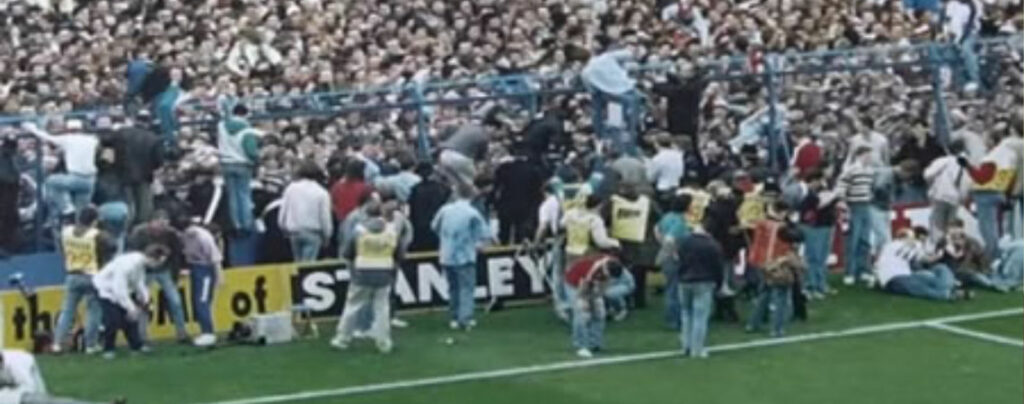
8th: The Kegworth air disaster happens when a British Midland Boeing 737 heading for East Midlands Airport crashes onto the M1 motorway. 44 people are killed in the incident. Investigators later put the disaster down to pilot error.
14th: Muslims demonstrate in Bradford against The Satanic Verses, a book written by Salman Rushdie, burning copies of the book in the city streets.
19th: Unemployment reaches a nine year low of just over 2 million.
25th: John Cleese wins a libel case after the Daily Mirror described him as having become like his character Basil Fawlty in the sitcom Fawlty Towers.
5th: Sky Television begins broadcasting as the first satellite TV service in Britain.
11th: ITV airs the first episode of Home and Away, an Australian soap which was launched in its homeland last year.
12th: Belfast lawyer Pat Finucane is murdered by the Ulster Defence Association.
14th: Ayatollah Ruhollah Khomeini of Iran places a fatwa (order to kill) on author Salman Rushdie following the publication of his controversial book The Satanic Verses, which has caused outrage among the Islamic community of Britain.
20th: IRA bomb the Tern Hill Barracks in Shropshire, injuring 50 soldiers of the Parachute Regiment.
23rd: 27-year-old William Hague wins the Richmond by-election in North Yorkshire for the Conservative Party following the departure of Leon Brittan to the European Commission.
Den Watts, the hugely popular character played by Leslie Grantham in the BBC’s soap opera EastEnders, departs from the series as the character is presumably killed in an episode watched by over 20 million viewers.
See our Top 10 TV Villains of the 1980s blog.
4th: Purley rail crash: two trains collide at Purley, Surrey killing six people.
6th: Glasgow Bellgrove rail accident: two trains collide near Bellgrove station in Glasgow, killing two people.
7th: Iran breaks off diplomatic relations with the UK over Salman Rushdie’s controversial book The Satanic Verses.
17th: The three men convicted of murdering paperboy Carl Bridgewater in Staffordshire 10 years ago have their appeals rejected. A fourth man convicted in connection with the killing died in prison in 1981.
20th: Chief Superintendent Harry Breen and Superintendent Bob Buchanan of the Royal Ulster Constabulary are killed by the IRA.
26th: Nigel Mansell wins the Brazilian Grand Prix.
5th: 500 workers on the Channel Tunnel go on strike in a protest against pay and working conditions.
6th: The government announces an end to the legislation which effectively guarantees secure work for more than 9,000 dockers over the remainder of their working lives.
10th: Nick Faldo becomes the first English winner of Masters Tournament.
15th: 94 fans are killed in a crush during the FA Cup semi-final at the Hillsborough Stadium in Sheffield during the FA Cup semi-final between Nottingham Forest FC and Liverpool F.C. (The figure would rise to 96) Around 300 others were hospitalized.
17th: Home Secretary Douglas Hurd announces plans to make all-seater stadiums compulsory for all Football League First Division clubs to reduce the risk of a repeat of the Hillsborough tragedy.
18th: The European Commission accuses Britain of failing to meet standards on drinking water.
The Hillsborough disaster claims its 95th victim when 14-year-old Lee Nicol dies in hospital as a result of his injuries. He had been visited in hospital by Diana, Princess of Wales, hours before he died.
Tottenham Hotspur remove perimeter fencing from their White Hart Lane stadium as the first step towards avoiding a repeat of the Hillsborough disaster in English football.
19th: The Sun newspaper sparks outrage on Merseyside with an article entitled “The Truth”, supported by South Yorkshire police and locally based news agencies, which claims that spectators robbed and injured dead spectators, and attacked police officers when they were helping the injured and dying. Other newspapers including the Daily Star and Daily Mirror, as well as several regional newspapers, have also printed similar allegations.
Channel Tunnel workers end their 14-day strike.
20th: The London Underground is at virtual standstill for a day as most of the workers go on strike in protest against plans for driver-only operated trains.
24th: The BBC’s Ceefax teletext is only running as a partial service today due to a strike by broadcasting unions.
28th: John Cannan, of Sutton Coldfield, is sentenced to life imprisonment with a recommendation that he should never be released after being found guilty of murdering one woman and sexually assaulting two others.
Fourteen Liverpool fans are convicted of manslaughter and receive prison sentences of up to three years in Brussels, Belgium, in connection with the Heysel disaster at the 1985 European Cup Final in which 39 spectators (most of them Italian) died. A further eleven Liverpool fans are cleared.
1st–3rd: 54 prisoners stage a three-day protest on the roof of Risley Detention Centre before giving themselves up.
5th: The Vale of Glamorgan constituency in South Wales is seized by the Labour Party in a by-election after 38 years of Conservative control.
8th: More than 3,000 British Rail employees launch an unofficial overtime ban, walking out in protest at the end of their eight-hour shifts.
14th: A public inquiry, headed by Lord Justice Taylor of Gosforth, begins into the Hillsborough disaster.
18th: Unemployment is now below 2,000,000 for the first time since 1980.
20th: Liverpool win the FA Cup final with a 3–2 victory over their Merseyside rivals Everton. It is the second all-Merseyside cup final in four seasons, and as happened in 1986, Ian Rush is on the scoresheet for Liverpool twice. Liverpool have won the trophy four times now.
24th: Sonia Sutcliffe, wife of “Yorkshire Ripper” Peter Sutcliffe, is awarded £600,000 in High Court damages against the satirical magazine Private Eye.
A police raid on a suspected drugs operation at a public house in the Heath Town district of Wolverhampton leads to a riot in which up to 500 people throw missiles and petrol bombs at police officers.
26th: Arsenal win the First Division league title against Liverpool, with a goal from Michael Thomas in the last minute of the last game of the season. Arsenal have now been league champions 9 times but until now hadn’t been league champions for 18 years.
30th: Passport office staff in Liverpool begin an indefinite strike in protest against staffing levels.
19th: Labour wins 45 of Britain’s 78 European Parliament constituencies in the European elections, with the Conservatives gaining 32 seats. The Green Party of England and Wales gains 2,300,000 votes (15% of the vote) but fails to gain a single seat. This is the first national election won by the Labour Party since its last general election win 15 years ago.
21st: Police arrest 250 people celebrating the summer solstice at Stonehenge.
22nd: London Underground workers stage their second one-day strike of the year.
24th: Race rioting breaks out in Dewsbury, West Yorkshire, following a protest in the town against the Islamic community by members of the far-right British National Party, formed 7 years ago as a splinter from the National Front.
2nd: An IRA bomb kills a British soldier in Hanover, West Germany.
10th: House prices in the south of England have fallen for the second successive quarter, but are continuing to rise in Scotland as well as the north of England.
11th: Britain’s dockworkers go on strike in protest against the abolition of the Dock Labour Scheme.
13th: The fall in unemployment continues, with the tally now standing at slightly over 1,800,000 – the lowest in nearly a decade.
17th: 1,500 British tourists are delayed for up to eight hours by French air traffic control strikes.
19th: The BBC programme Panorama accuses Shirley Porter, Conservative Leader of Westminster City Council, of gerrymandering.
20th: Labour’s lead in the opinion polls has increased substantially, with the latest MORI poll putting them nine points ahead of the Conservatives on 45%.
25th: The Princess of Wales opens the Landmark Aids Centre, a day centre for people with AIDS, in London.
28th: The industrial action by British Rail drivers is reported to be coming to an end as most of the train drivers have ended their overtime ban.
1st: Charlotte Hughes of Marske-by-the-Sea in Cleveland, believed to be the oldest living person in England, celebrates her 112th birthday.
4th: David Duckinfield, the chief superintendent who took control of the FA Cup semi-final game where the Hillsborough disaster occurred on 15 April this year, is suspended from duty on full pay after an inquiry by Lord Justice Taylor blames him for the tragedy in which 95 people died. Two victims of the tragedy, Andrew Devine (aged 22) and Tony Bland (aged 19) are still unconscious in hospital.
5th: A train derails near West Ealing station in London, but the passengers escape without serious injuries.
14th: The West Midlands Police Serious Crime Squad is disbanded when 50 CID detectives are transferred or suspended after repeated allegations that the force has fabricated confessions.
17th: Introduction of electronic tagging to monitor and supervise crime suspects.
18th: Manchester United chairman Martin Edwards agrees to sell the club to Michael Knighton for £10million.
20th: Marchioness disaster: A pleasure cruiser collides with a barge in the River Thames killing 51 people.
26th: Betteshanger, the last colliery in Kent, closes,[31] signalling the end of the Kent Coalfield after 93 years.
29th: Stone-throwing youths cause mayhem at the Notting Hill Carnival in London, in which many innocent bystanders are injured.
30th: The National Trust’s house at Uppark in West Sussex is severely damaged by fire.
31st: Buckingham Palace confirms that The Princess Royal and Captain Mark Phillips are separating after 16 years of marriage.
2nd: Economy experts warn that a recession could soon be about to hit the United Kingdom. This would be the second recession in a decade.
7th: Heidi Hazell, the 26-year-old wife of a British soldier, is shot dead in Dortmund, West Germany.
8th: The IRA admits responsibility for the murder of Heidi Hazell. The act is condemned as “evil and cowardly” by British prime minister Margaret Thatcher and as “the work of a psychopath” by Opposition Leader Neil Kinnock.
12th: 19,000 ambulance crew members across Britain go on strike.
15th: SLDP leader Paddy Ashdown addresses his party’s annual conference in Brighton with a vow to “end Thatcherism” and achieve a long-term aim of getting the SLDP into power.
22nd: Deal barracks bombing: The IRA bomb the Royal Marine School of Music in Deal, Kent killing 11 soldiers.
26th: Nigel Lawson resigns as Chancellor of the Exchequer; replaced by John Major, while Douglas Hurd becomes Foreign Secretary.
27th: David Owen, leader of the Social Democratic Party “rump” which rejected a merger with the Social and Liberal Democrats, admits that his party is no longer a national force.
29th: House prices in London have fallen by 3.8% since May, and are now 16% lower than they were at the height of the property boom last year.
2nd: Three clergy claiming to be from the British Council of Protestants, including Ian Paisley, cause a disturbance at an Anglican church service in Rome at which the Archbishop of Canterbury
Robert Runcie is preaching in protest at his suggestion that the Pope could become the spiritual leader of a united church.
8th: The latest CBI findings spark fear of a recession.
10th: The World Wrestling Federation holds its first UK event, at the London Arena.
11th: The Rover Group, Britain’s largest independent carmaker, launches its new medium-sized hatchback, the 200 Series, which replaces the small four-door saloon of the same name, and gives buyers a more modern and upmarket alternative to the ongoing Maestro range, which has declined in popularity recently.
The England national football team qualifies for next summer’s FIFA World Cup in Italy when drawing 0–0 with Poland in Warsaw.
12th: Michael Knighton drops his bid to buy Manchester United.
15th: Recession fears deepen as stock market prices continue to fall dramatically.
16th: the Social and Liberal Democrats, formed last year from the merger of the Social Democratic Party and Liberal Party, are renamed the Liberal Democrats.
Embed from Getty Images19th: The Guildford Four are released from prison after the High Court quashes their convictions for the 1975 terrorist atrocity.
Labour now has a 10-point lead over the Conservatives in the last MORI poll, with 48% of the vote.
23rd: The police force are now taking 999 calls in London due to the ongoing strike by ambulance crews.
31st: British Rail announces that the proposed high-speed rail link to the Channel Tunnel is being postponed for at least one more year.
2nd: Ford Motor Company takes over Jaguar in a £1.6billion deal.
7th: General Assembly of the Church of England votes to allow the ordination of women.
Don and Roy Richardson, developers of the new Merry Hill Shopping Centre in the West Midlands, announce plans to build the world’s tallest building – a 2,000 foot tower including a hotel and nightclub – on land adjacent to the shopping complex, which becomes fully operational next week after five years of gradual development.
8th: British Army and Royal Air Force troops are now manning London’s ambulance services as the regular ambulance crews are still on strike.
10th: Margaret Thatcher visits Berlin the day after the fall of the Berlin Wall, which brings the reunification of Germany forward after Germans were allowed to travel between West and East Berlin for the first time since the wall was built in 1961, and between West and East Germany for the first time since the partition of the country after the war.
14th: The Merry Hill Shopping Centre on the Dudley Enterprise Zone in the West Midlands becomes fully operational with the opening of the final shopping mall. The development, which now employs around 6,000 people, first opened to retailers four years ago with several retail warehousing units, and has gradually expanded to become Europe’s largest indoor shopping centre. Construction has now begun on the Waterfront office and leisure complex, also within the Enterprise Zone and overlooking the shopping centre, which will open to its first tenants next year.
16th: Children Act alters the law in regard to children in England and Wales; in particular, it introduces the notion of parental responsibility in access and custody matters.
21st: The House of Commons is televised live for the first time.
Nigel Martyn, 23, becomes Britain’s first £1million goalkeeper when he is transferred from Bristol Rovers to Crystal Palace.
23rd: 69-year-old backbencher Sir Anthony Meyer challenges Margaret Thatcher’s leadership of the Conservative Party, reportedly fearing that the party will lose the next general election after falling behind Labour in several recent opinion polls. Her leadership has never been challenged before in almost 15 years as party leader, more than 10 of which have been spent as prime minister.
30th: Russell Shankland and Dean Hancock, serving eight-year prison sentences for the manslaughter of taxi driver David Wilkie in South Wales during the miners strike, are released from prison on the fifth anniversary of the crime.
3rd: Margaret Thatcher, along with American president George Bush and Soviet leader Mikhail Gorbachev, declare the end of the Cold War after 40 years.
9,000 workers at British carmaker Vauxhall threaten to go on strike – a move which could end Britain’s hopes of becoming to a £200million engine plant for General Motors.
A new-look Band Aid forms for a new version of the Do They Know It’s Christmas? charity single for African famine relief.
5th: Margaret Thatcher defeats Anthony Meyer in a leadership election for the Conservative Party, but 60 MPs do not vote for her.
6th: Doctor Who is discontinued by the BBC after 26 years.
8th: ITV attracts a new record audience of nearly 27,000,000 for the episode of Coronation Street in which Alan Bradley (Mark Eden) is fatally run over by a Blackpool tram.
12th: Shares in newly privatised regional water industry utility companies (including the largest, Thames Water) achieve premiums of up to 68% in the first day of trading on the Stock Exchange.
18th: The Labour Party abandons its policy on closed shops.
The second phase of the M40 motorway, linking north Oxfordshire with the Warwickshire/Worcestershire border on the outskirts of the West Midlands conurbation, is opened. The final phase, which links this new motorway with the original London-Oxford section, is due to open within the next year.
23rd: Band Aid II gain the Christmas Number One with their charity record. 5 years ago, the original Band Aid single reached number 1 and achieved the highest sales of any single ever released in the UK.
The Jolly Boys Outing – An Only Fools and Horses special headlines on the BBC on Christmas Day.
The Christmas Number one was “Do they know its Christmas Time” by Band Aid II.
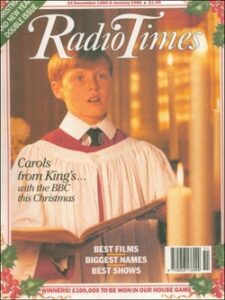
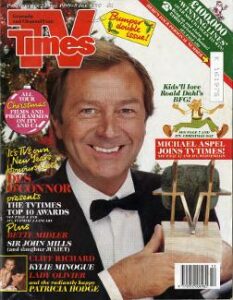
27th: SDP leader David Owen predicts another 10 years of Conservative rule, despite Neil Kinnock’s Labour Party having a seven-point lead over the Conservatives with 46% of the vote in the final MORI poll of the decade.
30th: 22 people involved in the Lockerbie disaster are among those recognised in the New Year’s Honours list, while there are knighthoods for former Liberal leader David Steel and the actress Maggie Smith becomes a Dame. Recipients of sporting honours include the boxer Frank Bruno and the golfer Tony Jacklin, both of whom are credited with MBEs.

Step back into the 80s with the iconic Ferrari Testarossa, the symbol of style and speed that defined a decade

Take a trip down memory lane with these 20 iconic board games and toys that defined our 1980s childhood in the UK.
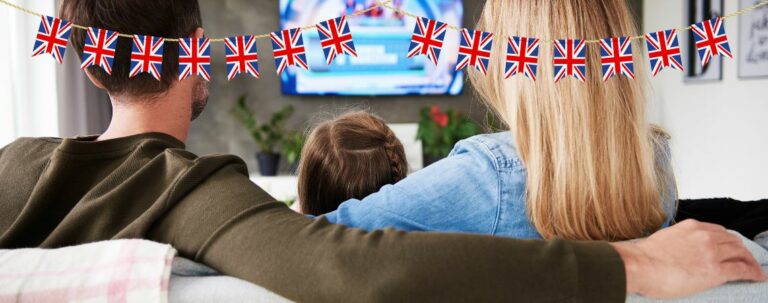
Immerse yourself in nostalgia with this collection of iconic 1980s UK TV adverts – a true blast from the past!

Tina Turner, the Queen of Rock ‘n’ Roll, whose life and career became a symbol of resilience and triumph, has left an enduring legacy
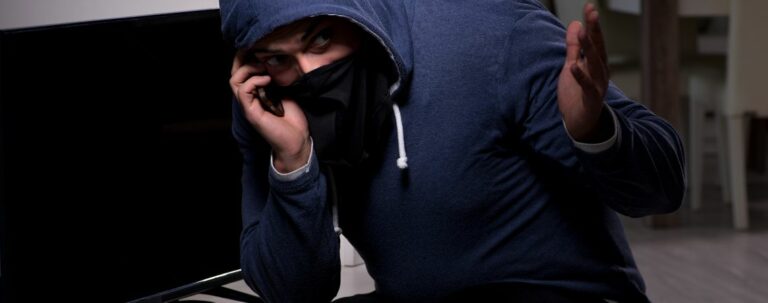
Uncover the Top 10 UK TV Villains of the 1980s: A journey through the most notorious and memorable antagonists of the decade
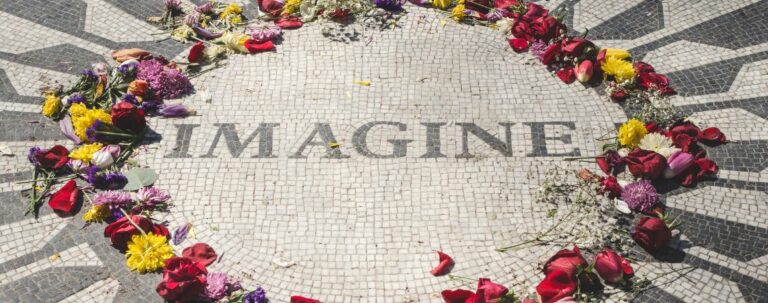
1980 saw the first CND rallies, the Alton Towers theme park opening and the murder of John Lennon in New York. The Moscow Olympics was the sport highlight.
No Events